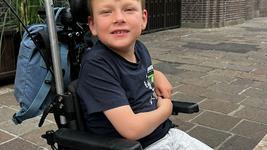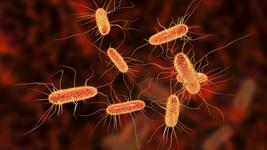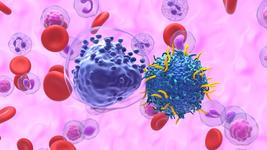CRISPR Highlights from ASH Meeting 2021
CMN Intelligence - The World’s Most Comprehensive Intelligence Platform for CRISPR-Genomic Medicine and Gene-Editing Clinical Development
Providing market intelligence, data infrastructure, analytics, and reporting services for the global gene-editing sector. Read more...
Each year, the American Society of Hematology (ASH) organises an international meeting that brings together haemotologists from all over the world to network and share knowledge. The meeting is the biggest event within the fields of malignant and non-malignant haematology with more than 20,000 attendees, including clinicians, scientists and industrial stakeholders.
In this piece, we highlight some of the news shared at this year's meeting by companies working to develop gene-editing therapies for blood diseases and cancers.
Emendo Biotherapeutics presents the first CRISPR treatment for severe congenital neutropenia
Emendo Biotherapeutics, a CRISPR company headquartered in Israel, presented pre-clinical data on its novel CRISPR-based ex vivo gene-editing therapy for ELANE-related severe congenital neutropenia (SCN). The experimental therapy, EMD-101, involves the specific excision of the disease-causing ELANE mutant allele with a specially-developed nuclease called OMNI A1. EMD-101 excises a single-point mutation commonly found in SCN patients, with the potential to treat appromixiately 75 % of all SCN cases.
SCN can arise when numerous heterozygous mutations in the ELANE gene result in misfolding and mislocalisation of mutant neutrophil elastase. This leads to myeloid cell death and precludes proper neutrophil differentiation. Current treatment involves daily injections of granulocyte colony-stimulating factor, which heightens the risk for developing myelodysplastic syndrome and acute myeloid leukaemia in treated patients. Beyond this, allogeneic haematopoietic stem cell transplantation may be effective but it comes with the serious risk of infections and graft versus host disease, which may be fatal.
Emendo's gene-editing strategy relies on its proprietary dual OMNI™ technology platforms that enable precise gene editing while maintaining high efficiencies, and the company believes that these plaforms make it possible to target any gene necessary to treat genetic disease, including those which have so far not been addressed by gene-editing strategies.
At the meeting, Emendo revealed that EMD-101 has been tested on CD34+ haematopoeitic stem cells derived from SCN patients, and this resulted in significant improvements in myeloid cell maturation and differentiation to normal functional neutrophils. Emendo also presented positive in vivo data obtained from experiments in an immunocompromised mouse model, which demonstrated long-term engraftment of EMD-101 cells in bone marrow, spleen and peripheral blood, with an almost two-fold increase in neutrophils compared to controls. Furthermore, the company observed a stable ELANE excision profile, and no systemic reactions, abnormal clinical signs or weight loss.
EMD-101 is being developed by Emendo Biotherapeutics in collaboration with researchers from the University of Washington and is currently being asssessed in IND-enabling studies. Beyond EMD-101, the company's pipeline also includes novel pre-clinical stage therapies for immunodeficiency (unspecified), bone marrow failure, cancer and a number of inherited eye diseases.
Advances in gene-edited therapy for haemoglobinopathies
Positive updates to Phase 1/2 PRECIZN-1 study (Sangamo Therapeutics and Sanofi)
Sangamo Therapeutics presented a poster with updated preliminary proof-of-concept clinical data from its ongoing Phase 1/2 PRECIZN-1 study of SAR445136, a zinc finger nuclease gene-edited cell therapy candidate (formerly known as BIVV003) for the treatment of sickle cell disease (SCD).
SAR445136, which is being developed in collaboration with Sanofi, is an ex vivo-engineered autologous HSC therapy designed to express foetal haemoglobin (HbF). So far, four patients within the age range 18-40 years have been treated with a single dose of SAR445136 following a myeloablative conditioning treatment. These patients will be followed for 2 years following treatment.
At the cut-off date for preliminary date collection, the most recently treated patient had been followed for 26 weeks and the longest-treated patient had been followed for 91 weeks. None of the treated patients required blood transfusions post engraftment, and total haemoglobin levels were stabilised by week 26 after treatment in all four patients. Foetal hemoglobin levels increased from 0.1-11% at screening to 14-39% by Week 26 in all four patients and was 38% in the longest-treated patient at 91 weeks. On-target BCL11A gene modification was confirmed in all four patients.
Sangamo's poster presentation, which includes follow-up data up to 91 weeks for the longest-treated patient, is available on Sangamo’s website here.
Progress overview for CEDAR trial (Graphite Bio)
Graphite Bio presented a trial-in-progress poster giving an overview of its ongoing Phase 1/2 CEDAR trial to evaluate GPH101 as a one-time curative treatment for SCD.
GPH101 is engineered using patient-derived HSPCs that are edited using CRISPR-Cas9 technology and a DNA repair template, in a strategy that essentially cuts the SCD mutation out of the genome and replaces it with the correct sequence. GPH101 was the first experimental therapy designed to address and fix the underlying single point mutation that causes SCD, and it has already been granted orphan drug designation from the U.S. FDA.
The company obtained IND approval for GPH101 late last year, and it recently announced enrolment of the first patient. It expects to obtain initial proof-of-concept data from the CEDAR trial by the end of 2022. Graphite Bio's poster presentation about the CEDAR trial can be downloaded here.
There are currently seven clinical-stage candidates in development for SCD. Read about all of them in our recent gene-editing trial roundup.
Update on first Cas12a-based CRISPR therapy - transfusion-dependent beta-thalassemia
Editas Medicine presented pre-clinical data on EDIT-301 for the treatment of transfusion-dependent beta-thalassemia (TDT).
EDIT-301 is developed using AsCas12a ribonucleoprotein to enhance the HBG1/2 promoter region in the beta-globin locus of patient-derived haematopoietic stem cells (HPSCs). Naturally-occurring HbF-inducing mutations at the HBG1/2 region support the clinical relevance of using gene editing to enhance the HBG1/2 promoter, and this strategy has been shown to increase the red blood cell levels of HbF.
EDIT-301 is the first experimental medicine in development using CRISPR-Cas12a gene-editing technology. AsCas12a-edited TDT erythroid cells had improved maturation, health, and higher total haemoglobin content per cell compared to controls. The company announced earlier this week that the FDA had given IND clearance to EDIT-301 for the initiation of a clinical trial in TDT. Meanwhile, the EDIT-301 Phase 1/2 RUBY trial for the treatment of sickle cell disease is currently enrolling patients and Editas expects to begin dosing in the first half of 2022. Read more about EDIT-301 in a previous clincal news update.
Stay up to date with clinical updates from the CRISPR Medicine field!
We strive to bring you the latest news about gene-editing therapies. You can find all our previous news articles about IND approvals and clinical trials here.
For a complete overview of CRISPR IND approvals and ongoing gene-editing clinical trials, check out CRISPR Medicine News' Clinical Trials Database.
Gene-edited natural killer cells for solid tumour treatment (Editas Medicine)
Editas Medicine presented a poster where it shared in vitro and in vivo pre-clinical data on two modified induced pluripotent stem cell (iPSC)-derived natural killer (or iNK) cell therapies that are being developed for solid tumours.
The new candidates are derived from iPSCs and edited using the company's SLEEK (SeLection by Essential-gene Exon Knock-in) gene-editing technology that relies on the proprietary AsCas12a nuclease.
The first candidate comprises iNKs that are subjected to double knock-in of CD16 and membrane-bound IL-15, both of which are positive regulators of NK activation and function. Editas reported that these cells, either as standalone therapy or in combination with trastuzumab (an approved monoclonal antibody that binds the HER2-expressing cancer cells), showed significantly enhanced tumour killing compared with wild type iNKs in an in vitro 3D ovarian tumour spheroid assay and in an in vivo mouse SKOV-3 cancer model. The company observed complete tumour clearance in 50 % of treated mice (n=4/8) following a single dose of the double knockout iNKs combined with three doses of trastuzumab, with persistence of DKI iNKs in the peritoneum of treated mice for more than three months, demonstrating iNK survival for a prolonged period without exogenous cytokine support.
The second candidate comprises iPSCs that were subjected to a double knockout of both the CISH (a negative regulator of T cell immunity) and TGFβ2 (a potent immunosuppressive cytokine that severely impacts NK activity)-encoding genes. These edits were designed to improve iNK cell effector function and provide resistance to TGFβ-mediated NK suppression in the tumour microenvironment. The double-knockout iNKs induced enhanced tumour killing in vitro in 3D ovarian tumour spheroids, and produced elevated levels of inflammatory cytokines, including IFN-γ and TNF-α, following stimulation. Moreover, the edited iNK cells induced significant reduction in tumour burden compared to controls when tested in vivo in a SKOV-3 ovarian cancer mouse model.
These findings demonstrate the potential of developing allogenic multi-gene-edited iNK cell lines for off-the-shelf solid tumour therapy therapy, More details about Editas' presentation can be found in the company's press release here and the poster presenting the aforementioned data can be downloaded here.
Diverse updates on gene-edited blood cancer therapies
The ASH meeting also included clinical or pre-clinical updates from Poseida Therapeutics, Allogene Therapeutics, Precision BioSciences, Wugen Inc., and Cellectis on programmes developed to treat various cancers, including multiple myeloma, B-cell malignancies, T-cell malignancies and acute lymphoblastic leukaemia.
Poseida Therapeutics provided updates on its BCMA-targeted CAR-T clinical trials, reporting that P-BCMA-101 (an autologous CAR-T candidate) demonstrated strong anti-tumour activity and was well tolerated in nearly 100 patients with relapsed or refractory multiple myeloma (MM) at the time of data cutoff. Learnings from P-BCMA-101 has also informed development of Poseida's first fully allogeneic CAR-T product candidate, P-BCMA-ALLO1, which is currently being investigated in a Phase 1 trial for MM.
Allogene Therapeutics reported positive results from its Phase 1 UNIVERSAL trial for single-dose treatment with ALLO-715 AlloCAR T™ cell therapy in relapsed or refractory MM. The company reported that ALLO-715, a TALEN-engineered anti-BCMA CAR T allogeneic candidate for MM is the first of its kind to demonstrate safety and substantial efficacy in the clinic. You can read more about ALLO-715 and the UNIVERSAL trial in our previous clinical news update. Allogene Therapeutics also reported positive Phase 1 data from the ongoing ALPHA trials in Non-Hodgkin’s lymphoma, which reveal potential for AlloCAR T™ therapy to be a safe and durable alternative to autologous cell therapy in CAR T naive patients.
Precision BioSciences reported updates to its clinical-stage allogeneic CAR T candidates, which are developed using the company's meganuclease-based ARCUS® genome-editing platform. The presentation at ASH included updated data from a Phase 1/2a clinical study of PBCAR0191 with enhanced lymphodepletion, demonstrating high response rates in heavily pre-treated relapsed or refractory subjects with predominantly advanced or aggressive B-cell cancers. You can read more about the ARCUS platform in an earlier clinical trial update.
Wugen Inc., a clinical-stage biotechnology company developing a pipeline of off-the-shelf cell therapies for cancer presented new pre-clinical data supporting the safety and efficacy of WU-CART-007 for T-cell malignancies. WU-CART-007 is CD7-targeting allogeneic CAR-T cell therapy candidate developed using CRISPR-Cas9 technology. The company also announced that the U.S. FDA has cleared its IND application for WU-CART-007. Wugen is currently preparing for enrolment of a Phase 1/2 clinical trial for relapsed or refractory T-cell acute lymphoblastic leukaemia or lymphoblastic lymphoma.
Cellectis shared positive clinical data from the BALLI-01 trial in relapsed or refractory B-cell acute lymphoblastic leukaemia (B-ALL), and pre-clinical data from TALGlobin01. The BALLI-01 trial is ongoing to evaluate the safety, maximum tolerated dose, and preliminary anti-leukaemia activity of UCART22, a TALEN-engineered CD22-targeting cell therapy in B-ALL, while TALGlobin01 is TALEN-engineered to correct the SCD-causing mutation via an adeno-associated virus (AAV)-delivered repair template.
Tags
ArticleNewsin vivoElectroporationRibonucleoprotein (RNP)Acute Lymphoblastic Leukemia, ALLB-cell Malignancy, NHLBeta ThalassemiaBlood DiseaseBone Marrow Failure 2, BMFCancerMultiple Myeloma, MMMultiple Solid Tumor AdultNon-Hodgkin Lymphoma, NHLSevere Congenital Neutropenia, SCNSickle Cell Disease, SCDSolid Tumor AdultSolid TumoursDisease Trial CardsCancerCAR-TARCUSCRISPR-CasCas12aCas9MeganucleasesTALENsZFN - Zinc finger nucleasesFDAAllogene Therapeutics, Inc.Cellectis S.A.Editas Medicine, Inc.Emendo BiotherapeuticsGraphite Bio, Inc.Poseida TherapeuticsPrecision BioSciences, Inc.Sangamo Therapeutics Inc.Sanofi S.ATrialsClinicalIND - Investigational New DrugPre-clinical
CLINICAL TRIALS
Sponsors:
Base Therapeutics (Shanghai) Co., Ltd.
Sponsors:
Base Therapeutics (Shanghai) Co., Ltd.







